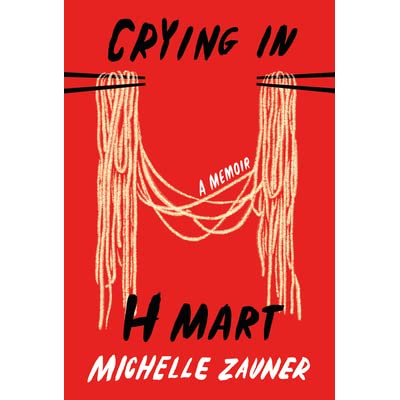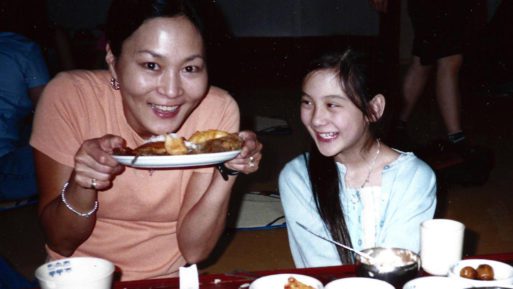
Korean grandmothers eating noodles, sweet rice cakes in plastic sleeves, frozen dumpling skins awaiting filling — these are the sights that prompt author Michelle Zauner to burst into tears in H Mart (FYI, H Mart is a US chain of Korean supermarkets packed with delicacies from Korea and beyond). This scene also comprises the opening of Zauner’s runaway best-selling memoir, “Crying in H Mart,” a sometimes heartbreaking, always raw account navigating her mother’s diagnosis and death from cancer.
Interspersing that story are flashbacks to memories from her child- and young adulthood: from an only-child youth spent clinging to mom, and biannual mother-daughter trips visiting extended family in Korea, to teenage years fraught with mutual tension, anger, even violence.
From the best of times to the worst of times, though, food was the one constant through which Zauner’s mother showed her love. Whether she’d just crashed the car or aced a test, Zauner could always count on a pungent radish kimchi or bubbling pork stew awaiting her at home. And it’s the food, too, that launches Zauner into an exploration of her “Korean-ness.”
Nowhere does she feel her mother’s absence more acutely than when she craves some familiar meal, with all the ingredients there at H Mart. But, when she’s unsure which brand of seaweed is the “right” one or how to eat a particular beef dish, she aches for her mom — and questions the claim to a Korean heritage. This is why, of course, you might still catch Zauner “Crying in H Mart.”

Michelle and mother enjoy a meal, family photo
Credit: CBS News
The author describes how she and her mother, Chongmi, had just begun repairing their relationship as she entered her 20s, winding up closer than ever. In a bitter twist of fate, Chongmi received her diagnosis shortly after, and quickly deteriorated. (Zauner’s father was in the picture too, though the memoir isn’t centered around him and the two are now estranged.)
Zauner traces this sorrowful journey in full relief, from determination to beat the cancer through the the rigors of chemo, to the anguished recognition that it’s just not working. The shades of emotion she shares are straightforward, if not always expected:
Maybe we hadn’t tried hard enough […]. Maybe god hated us. […] We had fought and lost—and among all the natural, heartbreaking emotions we had expected to feel, it also felt strangely embarrassing.
The spectrum Zauner spans includes her mother’s last moments, the zombie-like state of funeral arrangements and the immediate aftermath of loss, the weirdness of life with, and now without, her mom.
My mother had struggled to understand me just as I struggled to understand her. Thrown as we were on opposite sides of a fault line — generational, cultural, linguistic — we wandered lost without a reference point. […] Then, what would have been the most fruitful years of understanding were cut violently short, and I was left alone to decipher the secrets of inheritance without its key.
Decipher she does, though, or at least gives it her best. With this, “Crying in H Mart” isn’t all lamentation. Though Zauner acknowledges she’ll forever feel the pain of the loss, she moves forward with exploring new horizons — new configurations of family, what it looks like to solidify her Korean roots now, to what extent these roots live in her blood. Though tinged bittersweet, Zauner embraces the future.
Because of its rawness, Zauner’s painstaking and painful illustrations of despair, the book may not be ideal for those fresh from loss, or seeking a curative guide on moving through grief. Nonetheless, if you’re open to go on a full-color journey of love and loss, along with the complications and catharsis that can bring, “Crying in H Mart” is a stunning read.

 “Crying in H Mart” by Michelle Zauner
“Crying in H Mart” by Michelle Zauner


 John Mulaney’s “Funeral Planning” on Netflix: No Real Plan
John Mulaney’s “Funeral Planning” on Netflix: No Real Plan

 Composting Bodies Is Now Legal in a Dozen States
Composting Bodies Is Now Legal in a Dozen States














